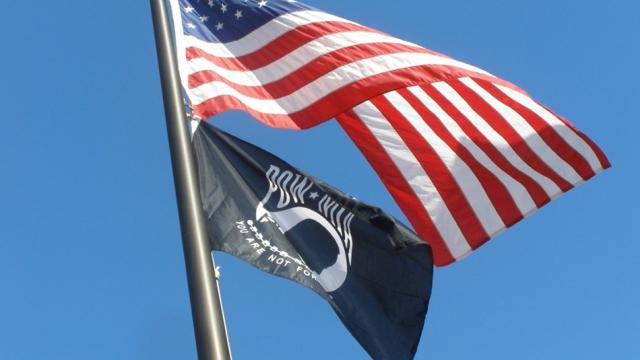
Legionnaire’s efforts to fly POW/MIA flag pay off
The American Legion pays respect to the POW/MIA flag during all American Legion gatherings, meetings, banquets and services by reciting our organization’s POW/MIA ceremony. The flag represents the more than 83,000 U.S. servicemembers who remain classified as either prisoners of war or are missing in action.
Americans and businesses are encouraged to fly the POW/MIA flag on POW/MIA Recognition Day, the third Friday in September, but one Legionnaire has ensured that the flag is flown year-round in his city.
Over the course of four years, William “Sarge” Garlitz made what he thinks is around 15 trips back and forth from his home in Ocean City, Md., to Annapolis – roughly 116 miles each way. The reason: to urge the Maryland General Assembly to pass legislation that would fly the POW/MIA flag above the Maryland State House and all other state buildings, with a few minor expectations, that fly the U.S. flag.
Recently, Garlitz saw his efforts pay off.
Maryland Gov. Larry Hogan signed into law legislation that will do just what the Synepuxent Post 166 Legionnaire has been seeking for so many years.
“I just thought that this flag should be flown here so that Maryland wants to send a message that we’re not going to forget the unaccounted (servicemembers),” said Garlitz, a 51-year member of the Legion.
Garlitz previously had persuaded former Baltimore Mayor Stephanie C. Rawlings-Blake to fly the POW/MIA flag over the Baltimore Convention Center during our 2015 National Convention.
“I told her that the message would be given out that Baltimore does not forget the POWs and (MIAs),” Garlitz said.
For years the proposed state legislation remained stuck in committee. “Once I get my teeth into something, I don’t give up,” Garlitz said.
He repeatedly testified in front of House and Senate committees wearing his Legion cap. He also worked with state legislators and praised State Sen. James Mathias Jr. and State Delegate Teresa Reilly for their efforts in gaining passage of the legislation. “(Mathias) never gave up on us,” Garlitz said. “And (Reilly) was very, very instrumental in the House.”
Finding out the legislation passed unanimously in both chambers was special for Garlitz. “It was a feeling like … a weight off my shoulders,” Garlitz said. “It was like you won a ballgame in overtime, and you had whatever it took to make the victory work.
“It was your mind being at ease and saying ‘mission accomplished.’”
